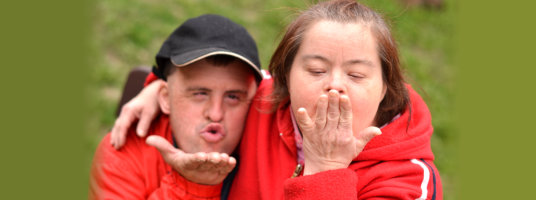 People with intellectual and developmental disabilities (IDD) have the right to the best possible care, which includes exercise in their daily routine. This will make them feel healthy and happy. These individuals should benefit greatly from the positive effects of exercise on one’s mental health.
People with intellectual and developmental disabilities (IDD) have the right to the best possible care, which includes exercise in their daily routine. This will make them feel healthy and happy. These individuals should benefit greatly from the positive effects of exercise on one’s mental health.
Exercise is known to improve self-esteem and cognitive functioning whilst ameliorating instances of anxiety, depression and negative mood (Callaghan, 2004).
A set schedule of activities with clearly established goals gives adult with disabilities a sense of structure and routine that allows them to feel in control and invested. It can improve both their quality of life and overall life expectancy.
It helps regulate sleep & reduces stress.
Exercise lifts mood, improves sleep, and reduces stress. It can strengthen circadian rhythms, promote daytime alertness and help bring on sleepiness at night. It has been shown to improve sleep for people with sleep disorders, including insomnia and obstructive sleep apnea.
Exercise is often a neglected determinant of good mental and physical health and its role should not be underestimated in health promotion for people with developmental disability.
It helps improved cardiovascular health
Adults with developmental disabilities also suffer from significantly higher rates of cardiovascular disorders when compared with adults of the same age. By incorporating a regular routine of activities for adults with developmental disabilities, they will benefit from overall improved wellness and a lowered risk of cardiovascular issues. It can also help to improve stamina and increase their energy levels.
The health consequences of inactivity
People with disabilities tend to be less Active and are also at risk of impairments due to the nature of their disabilities and sedentary lifestyles that may further compromise their health. Lack of exercise for people with developmental disabilities can increase developing of more serious mental and/or psychiatric illnesses. It can also lead to decreased circulation, poor self-concept, decreased independence, cardiovascular disease, type 2 diabetes, high blood pressure, obesity, osteoporosis, osteoarthritis, decreased balance, strength, endurance, fitness, flexibility, obesity, and depression.
Fun activities for staying active.
Seeing exercise as a social opportunity can make it fun for people with special needs and ensure that they find the right balance to stay active, healthy, and engaged with their community. Outings including excursions, horse riding, fishing, League Games and Sports are all great ideal for staying active.
References
Callaghan, P. (2004). Exercise: A neglected intervention in mental health care. Journal of Psychiatric Mental Health and Nursing, 1, 476–483.
We sincerely appreciate your interest in this important topic and hope you will join us with your comments.







Leave a Reply